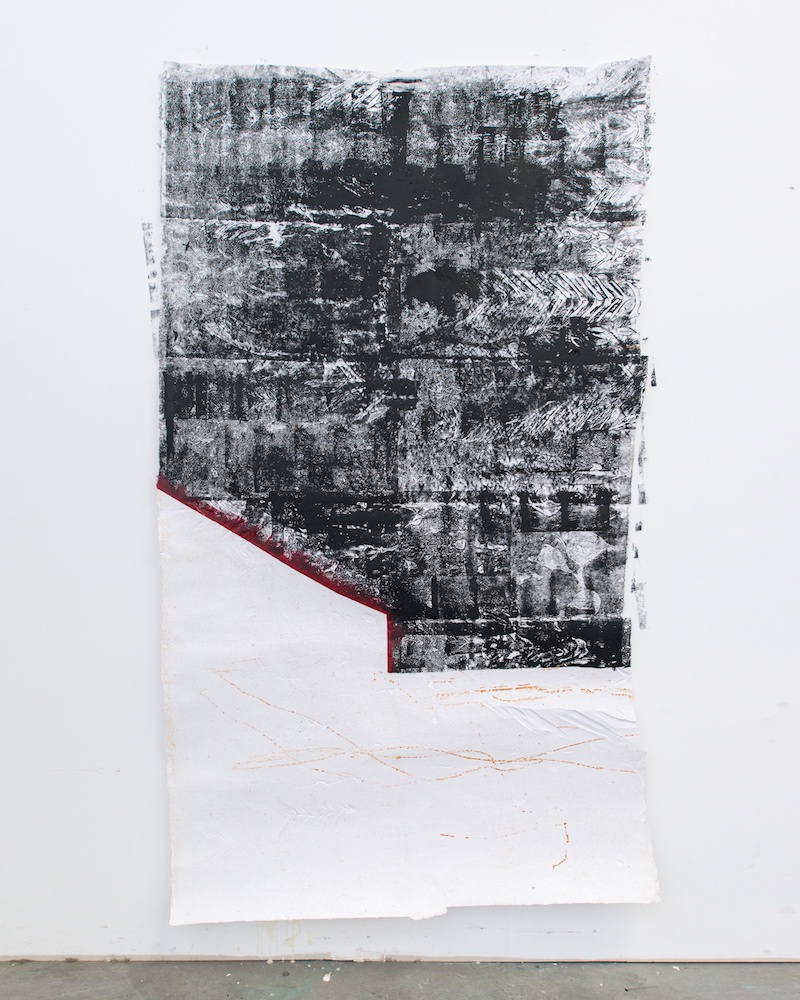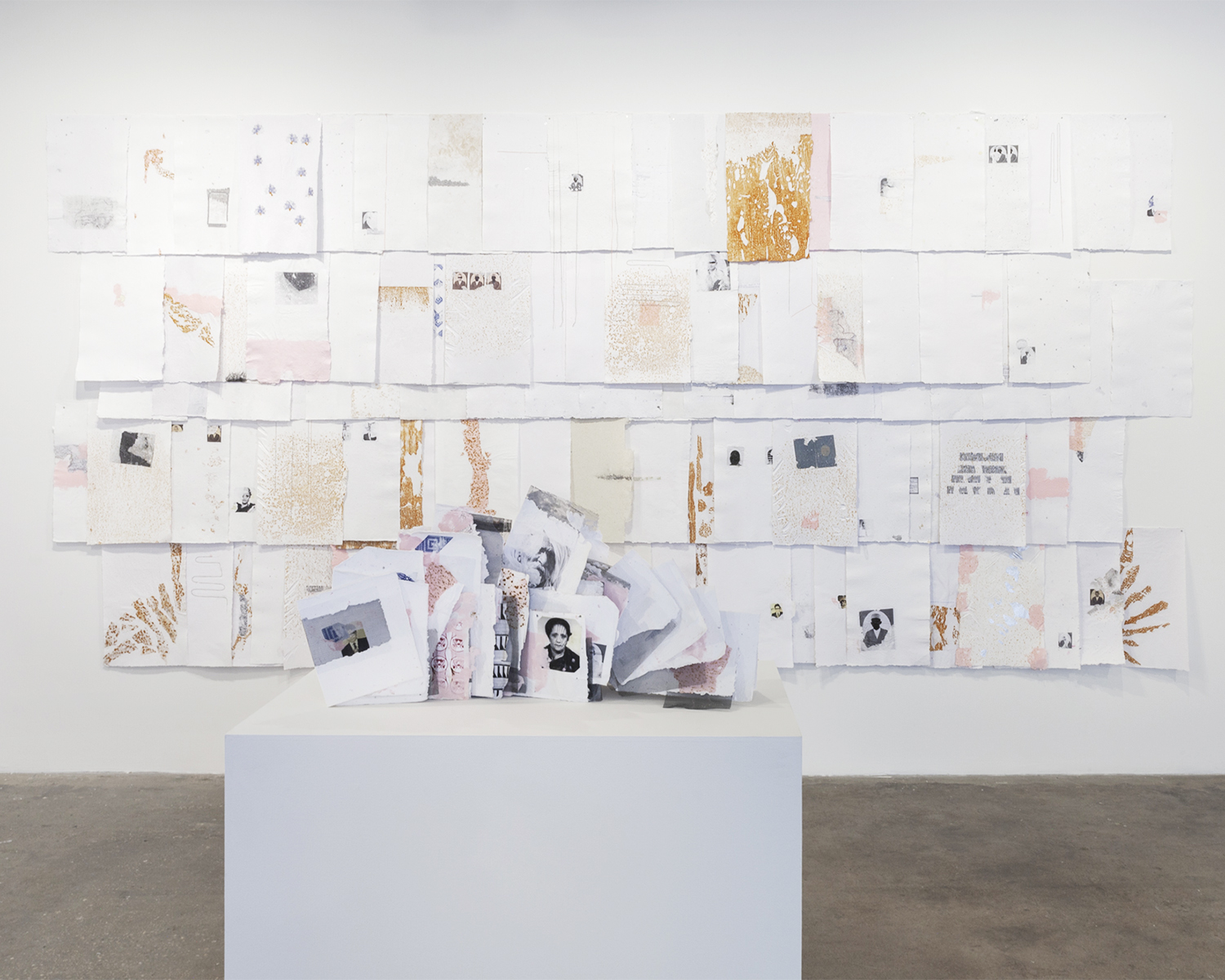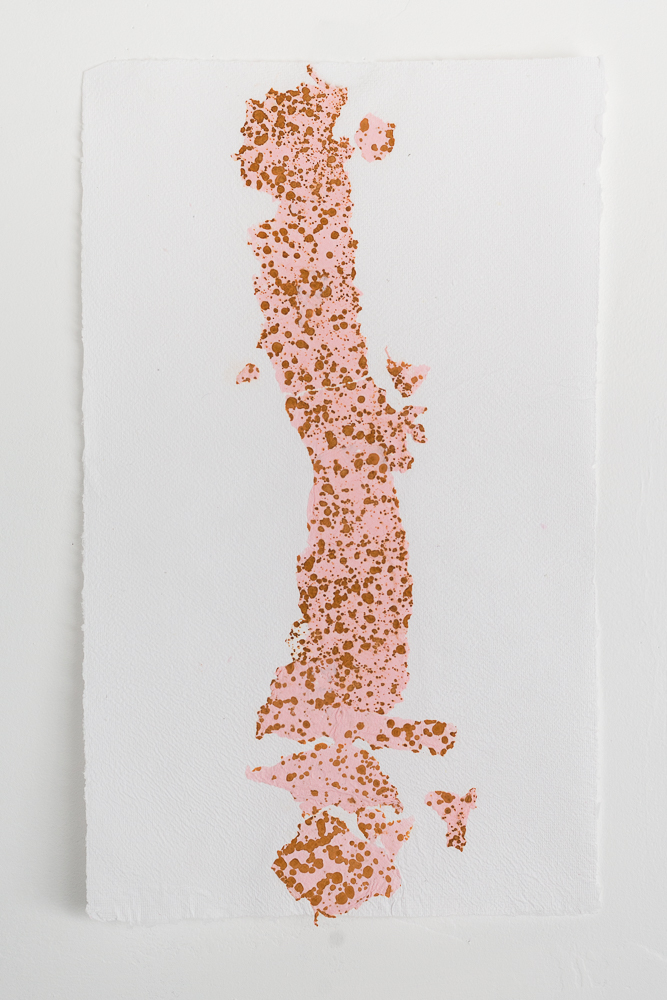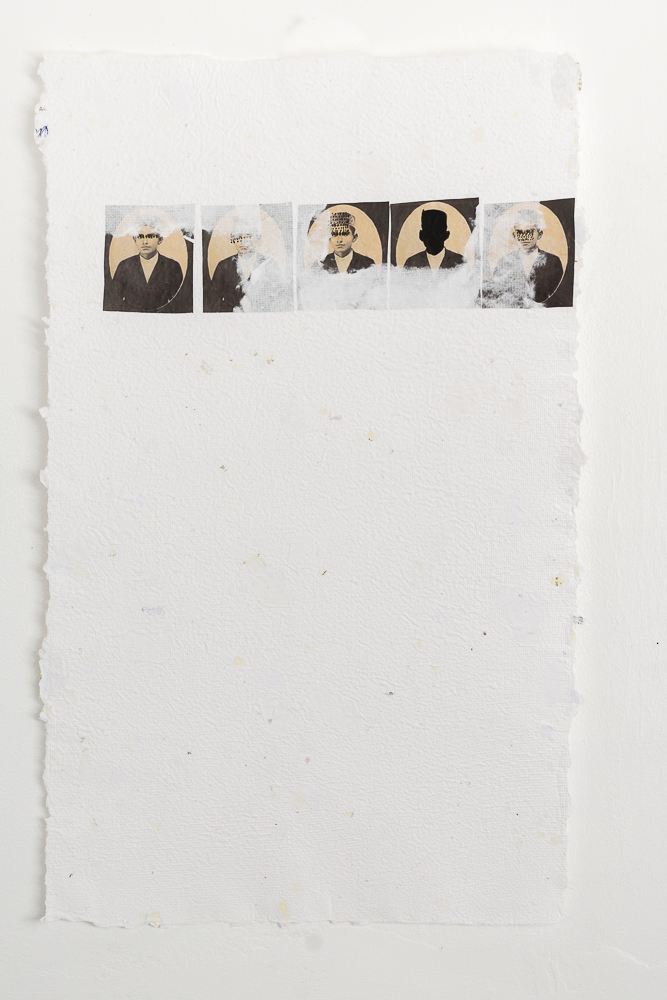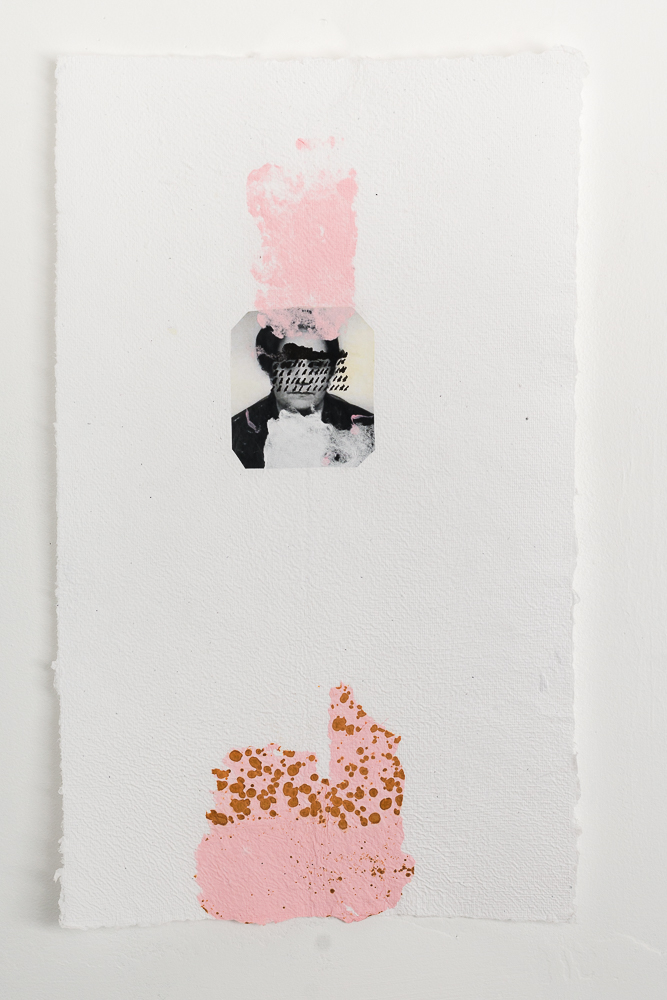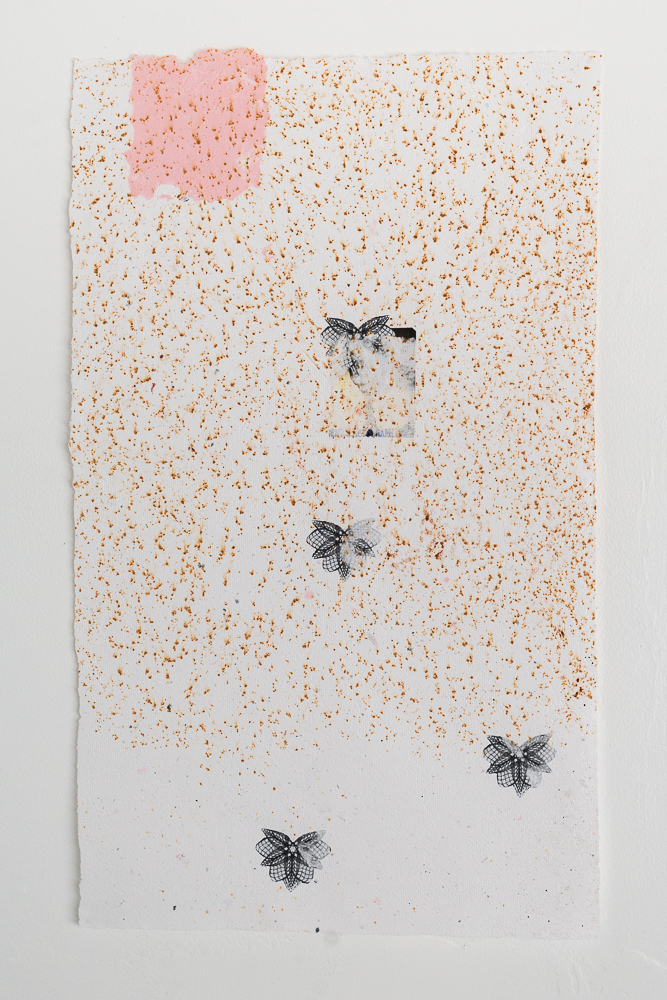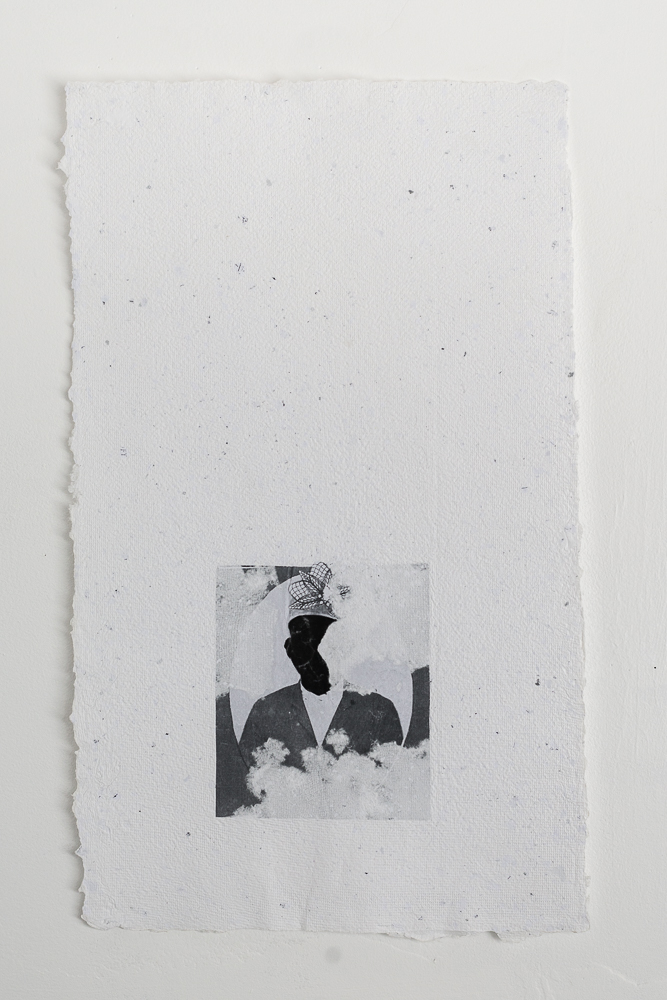PAPERwork
14ft x 8ft x 3ft
Asylum application forms, Mosquito netting, Cinder blocks, and steal,
Handmade paper pulped from photocopied government-issued identification documents and commercial paper; with aluminum mesh, photocopy collage, rust transfer, and other mixed media collage.
Old visa and travel documents are shredded and submerged in water forming a pulp that is then filtered to make new, recycled paper that makes up the material in PAPER:work. I pull from my own application documents for the visas I need to travel the globe as a Kenyan citizen, copies of my family’s documents, and blank asylum application documents. The process of dissolution and reformation mirrors the bureaucratic processes imposed upon people traveling and living across multiple borders. It is a metaphor used to question the notions of authenticity and nationality that govern borders and further inculcate practices of neocolonialism. It demonstrates how a person’s history and identity are distilled to compose a wholly distinctive entity who is deemed by the state legally permitted to move between borders.
This project began as a way to make sense of what nationality meant to me and how my life was contingent on the borders I was born between. It unfolded in tandem with my artist visa application for the United States. I started looking at my great-grandfather’s ID documents from when he was migrating to Kenya from North India in the 1890’s. I became interested in the paperwork and how these documents changed after Kenyan independence in 1963. It was while sifting through these old documents that I became aware of how much paperwork had authority over my family and myself. The personal handling of my family’s historical paperwork is translated directly into my artistic work as I watch identities be taken apart and compressed as with the papermaking process.
PAPER:work sculptures are larger-than-life proofs of a single family’s history with bureaucracy. The series ultimately questions the neocolonialist bureaucratic method as a way to exert control over people—whether singular persons, or whole nations. The effective immobilization of large groups has colonial roots in that it limits or halts their freedom entirely.
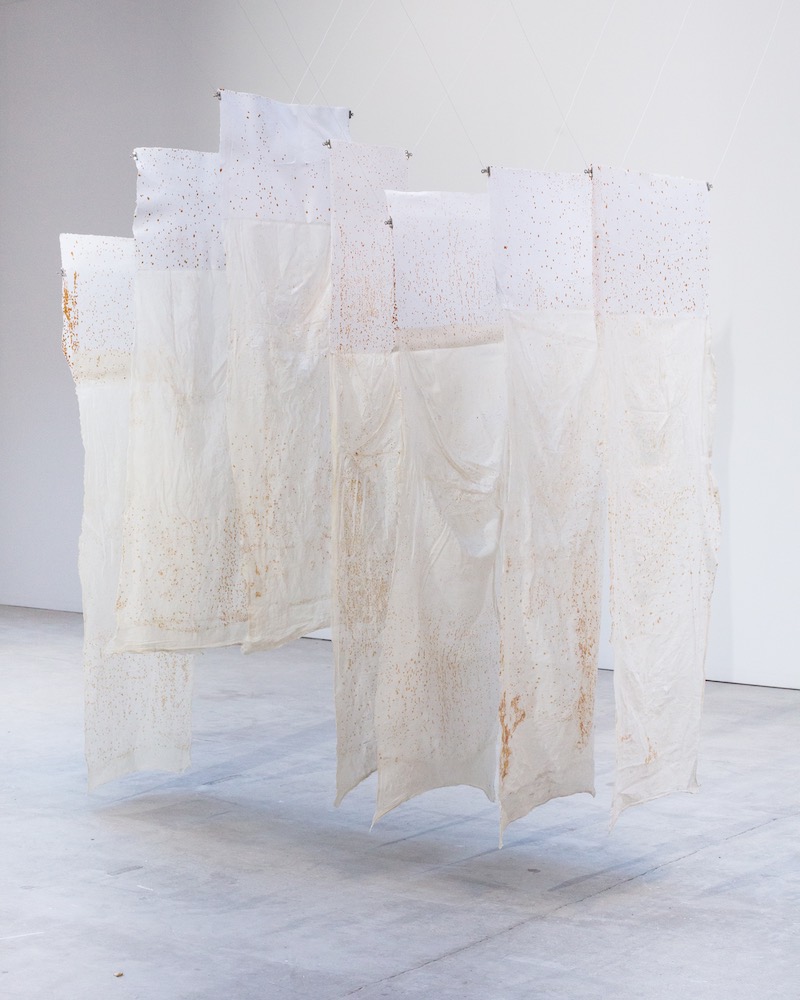

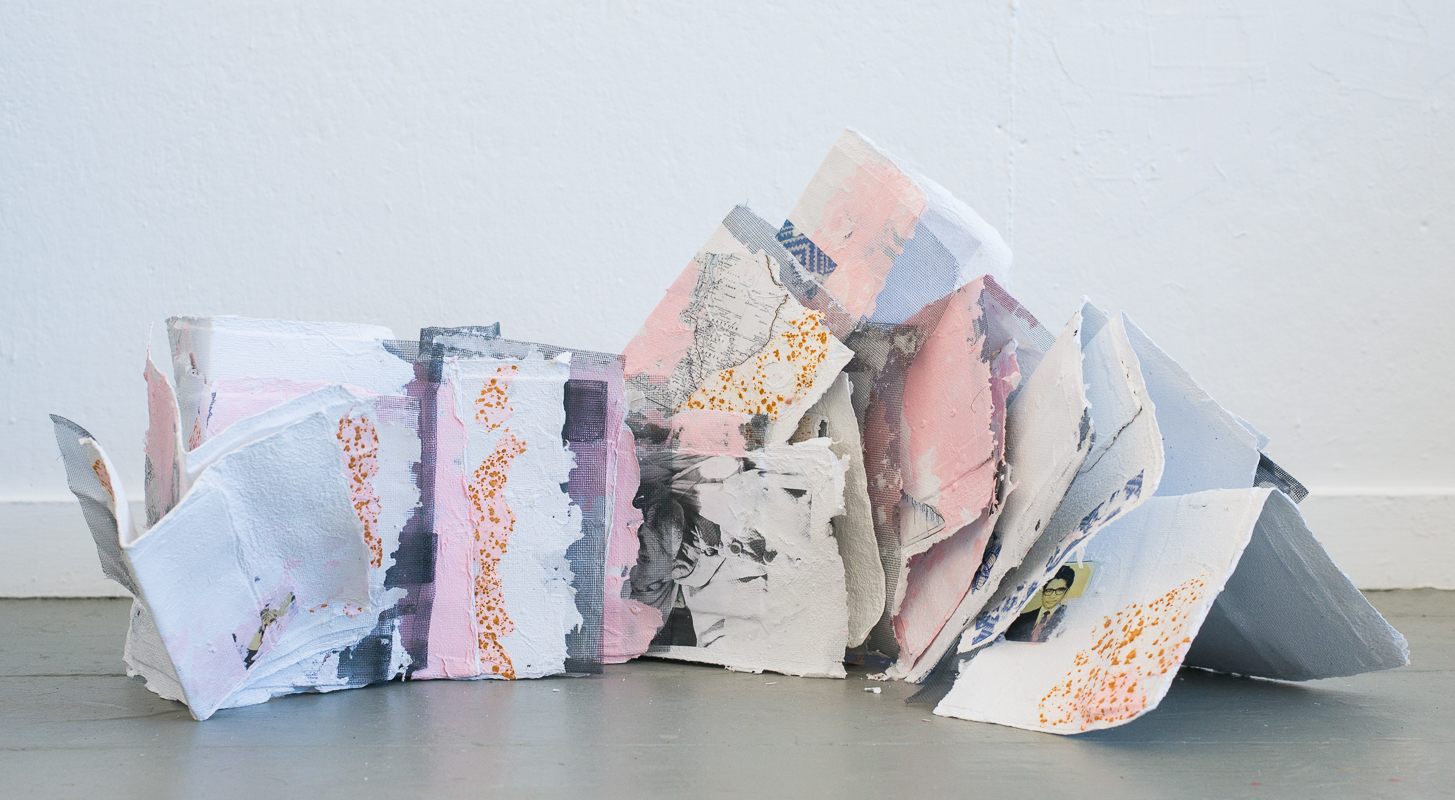
Handmade paper pulped from photocopied government-issued identification documents and commercial paper; with aluminum mesh, photocopy collage, rust transfer, and other mixed media collage.
